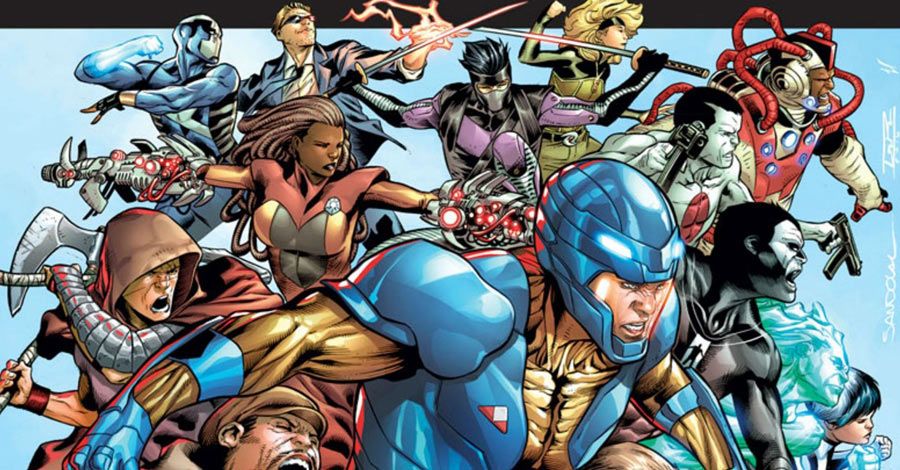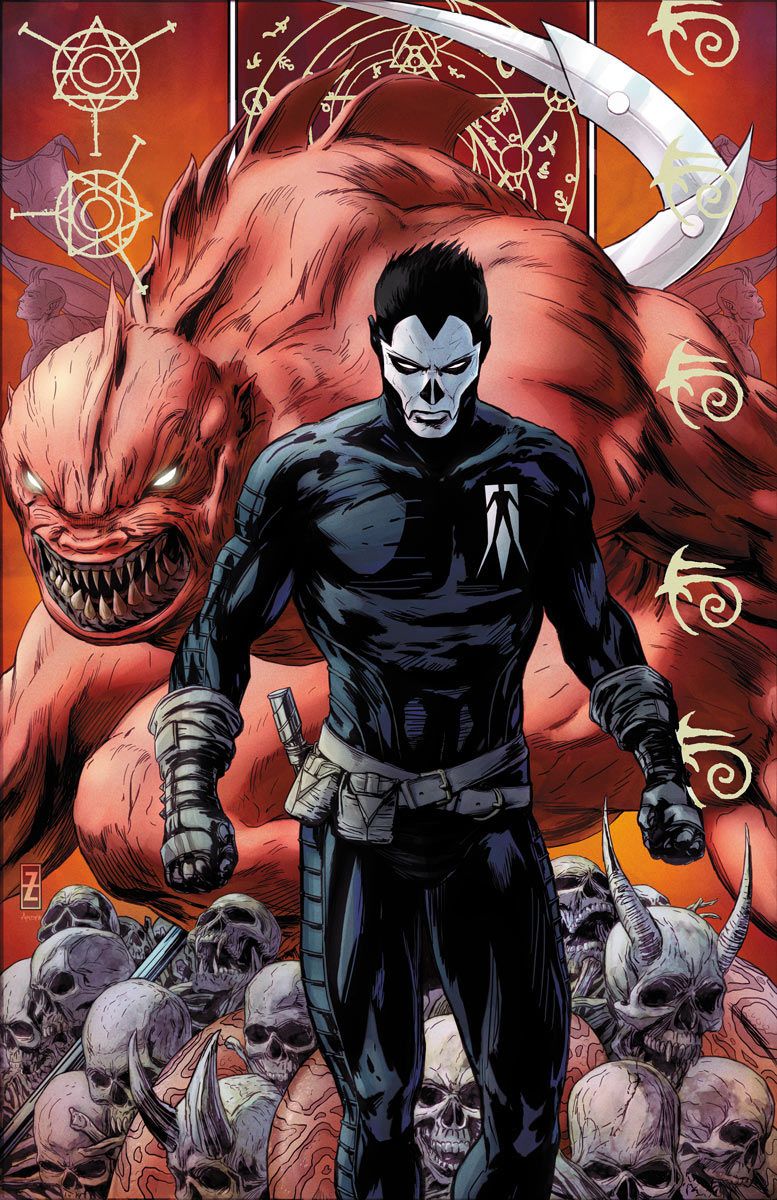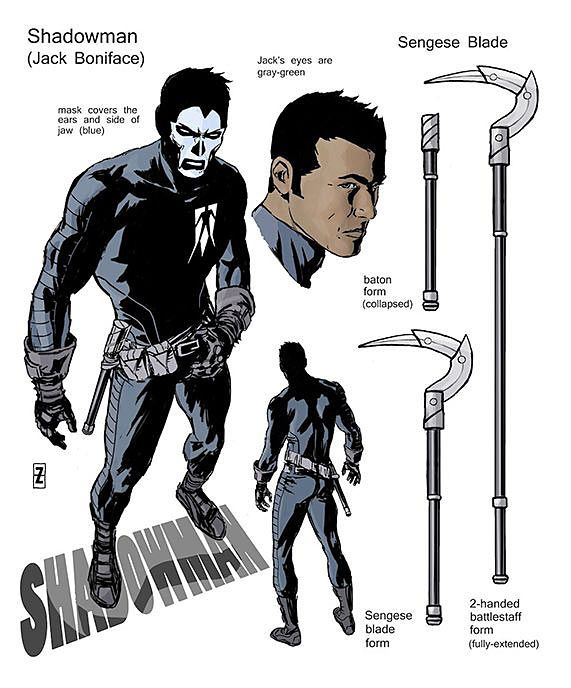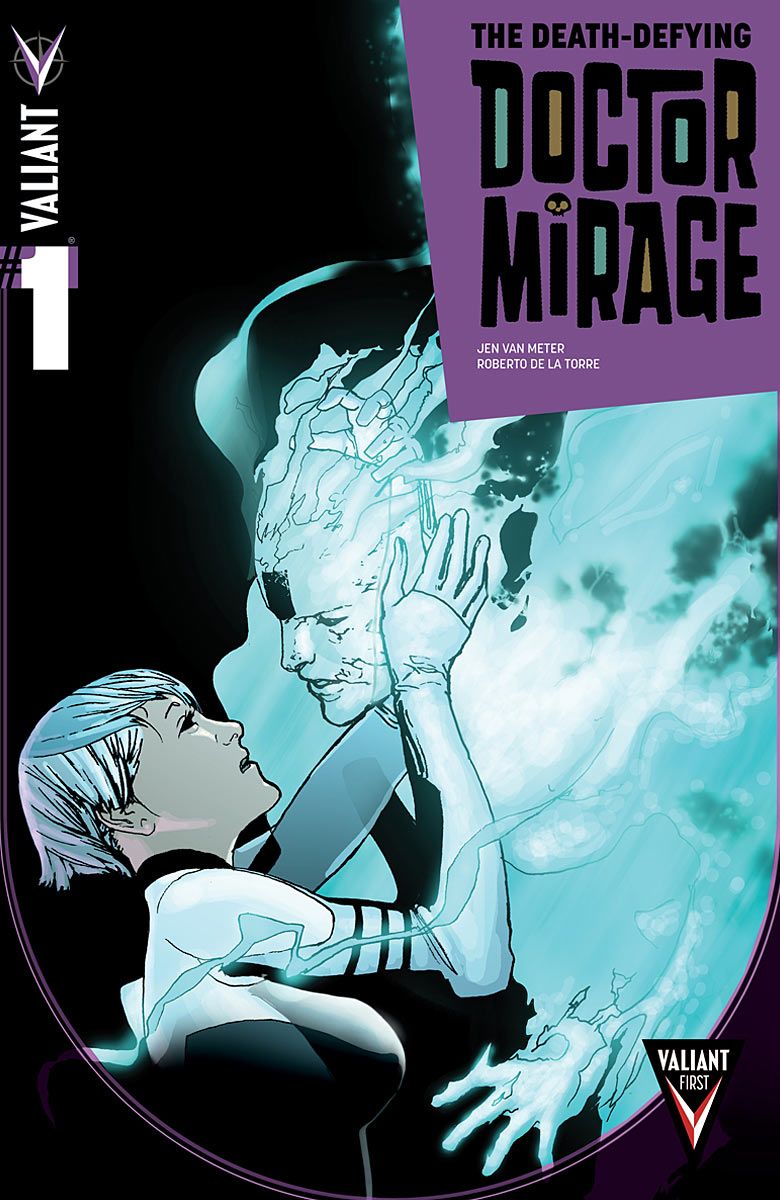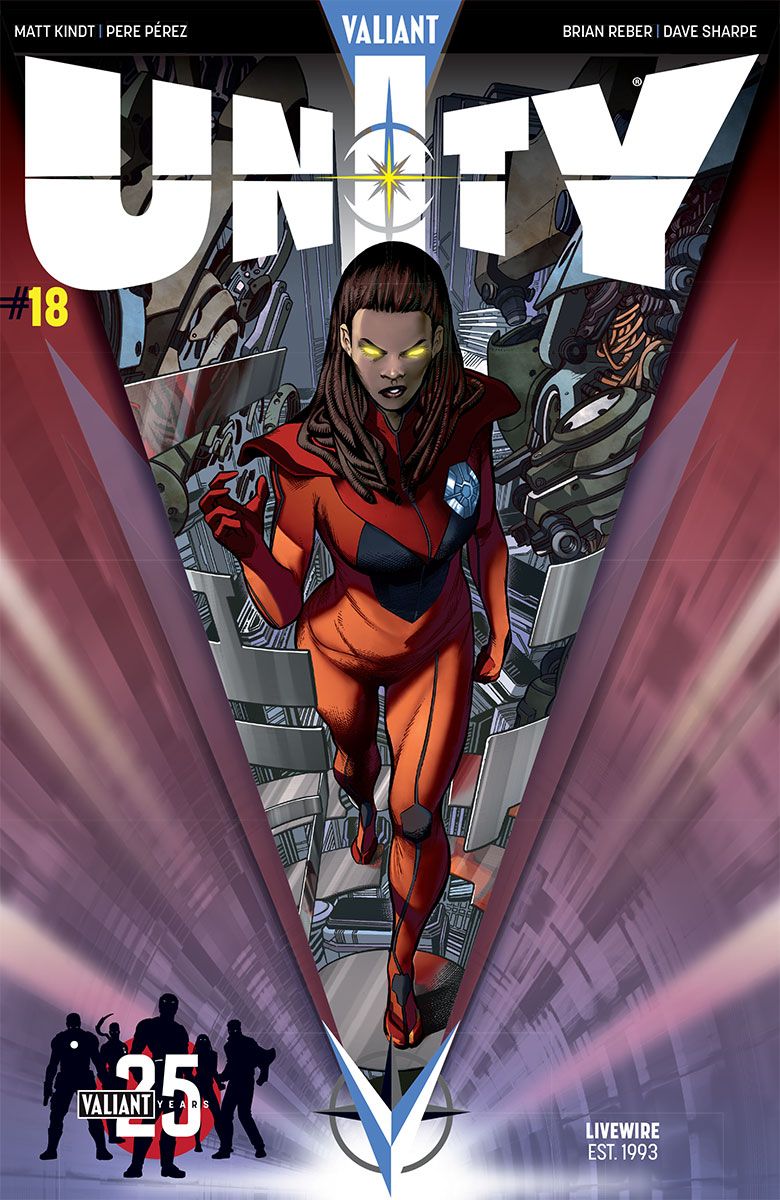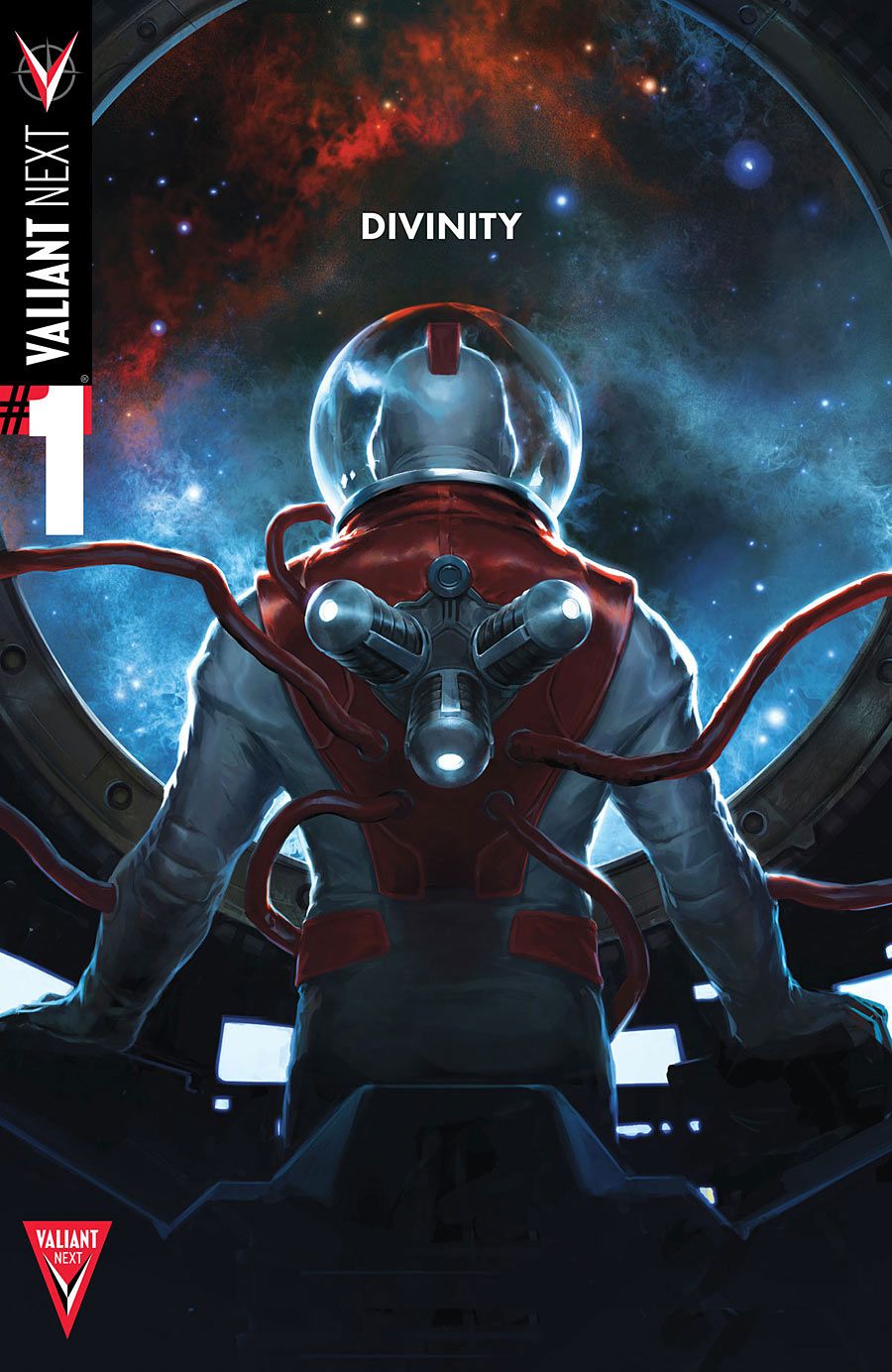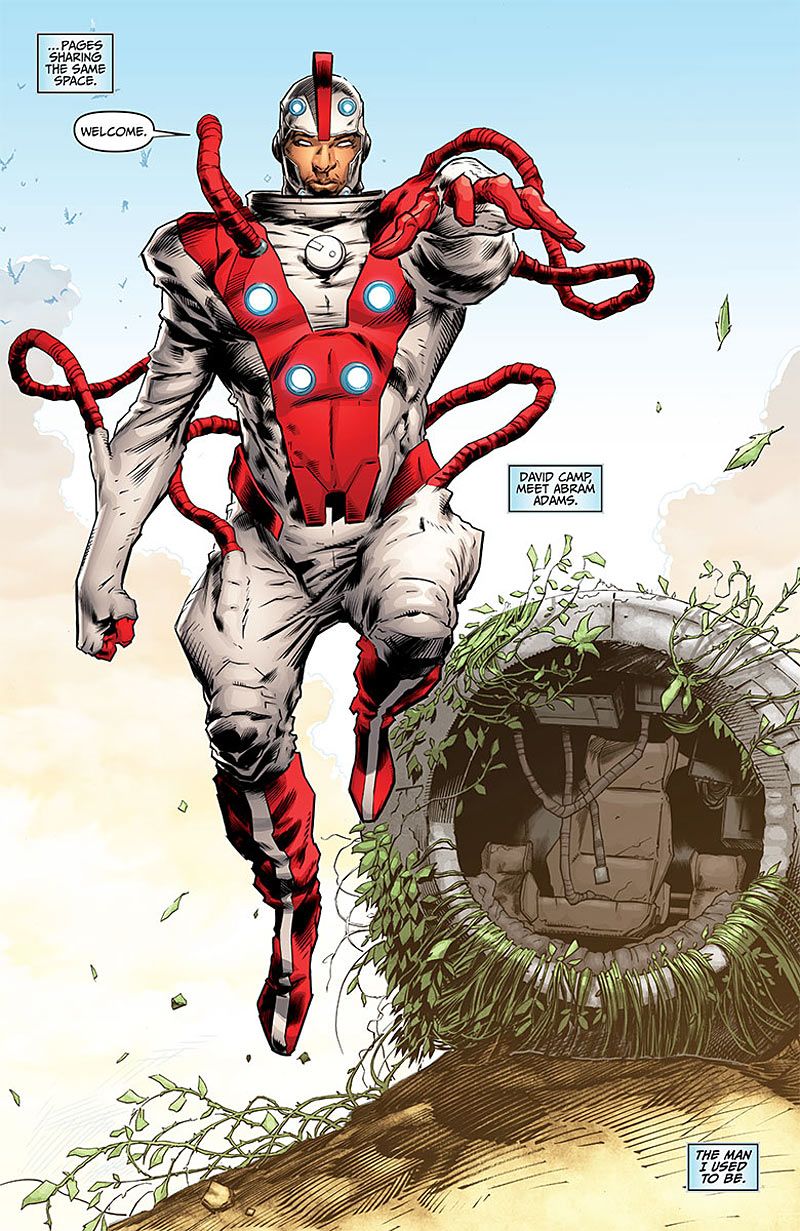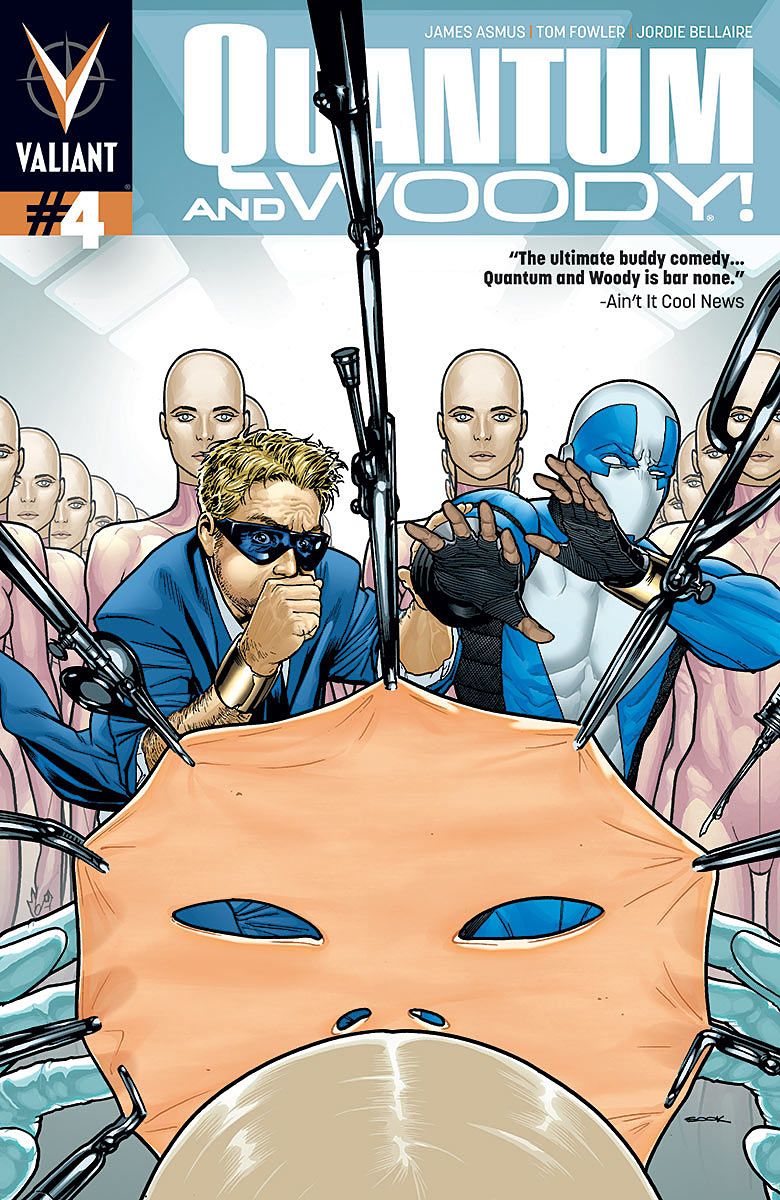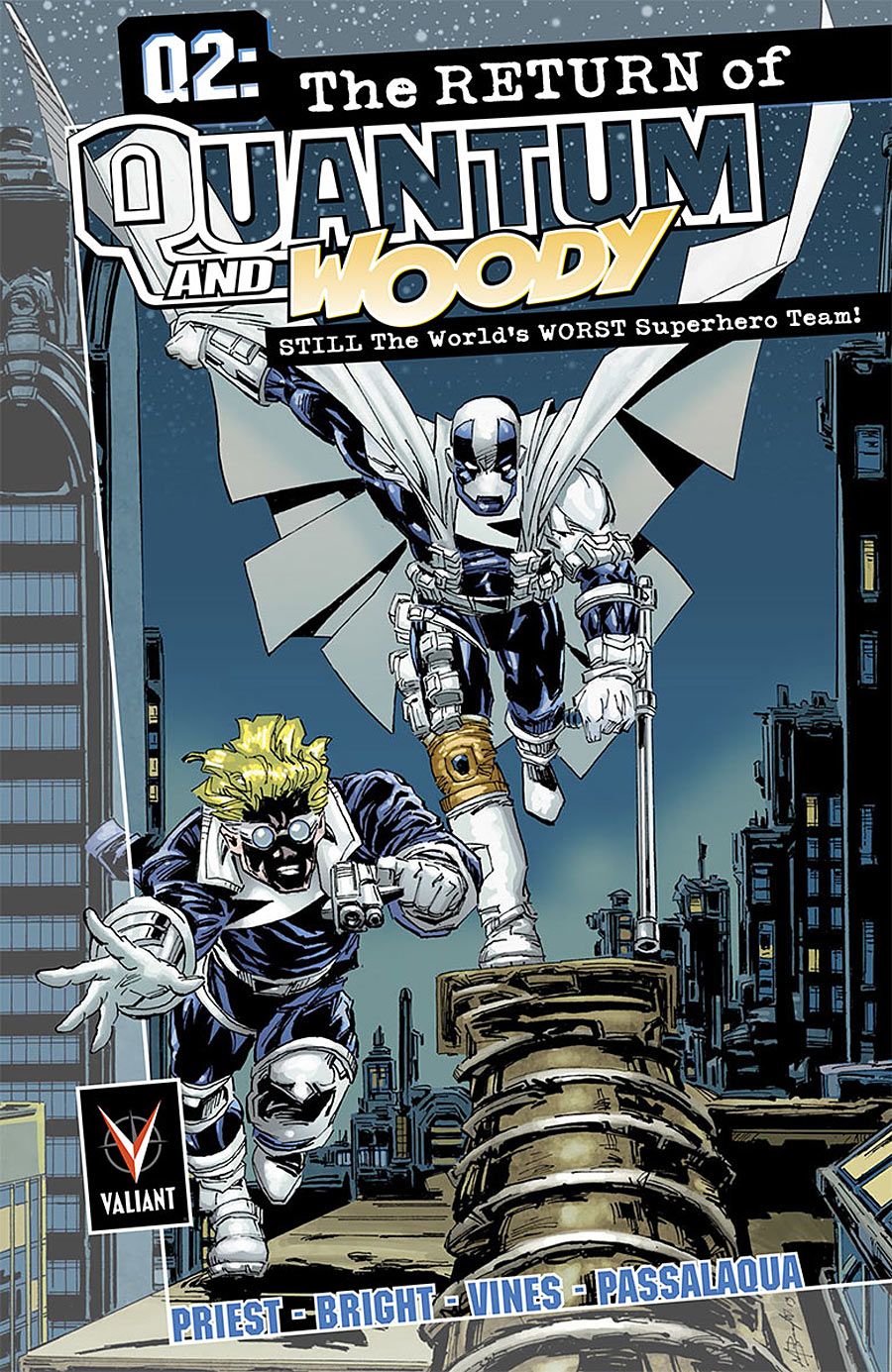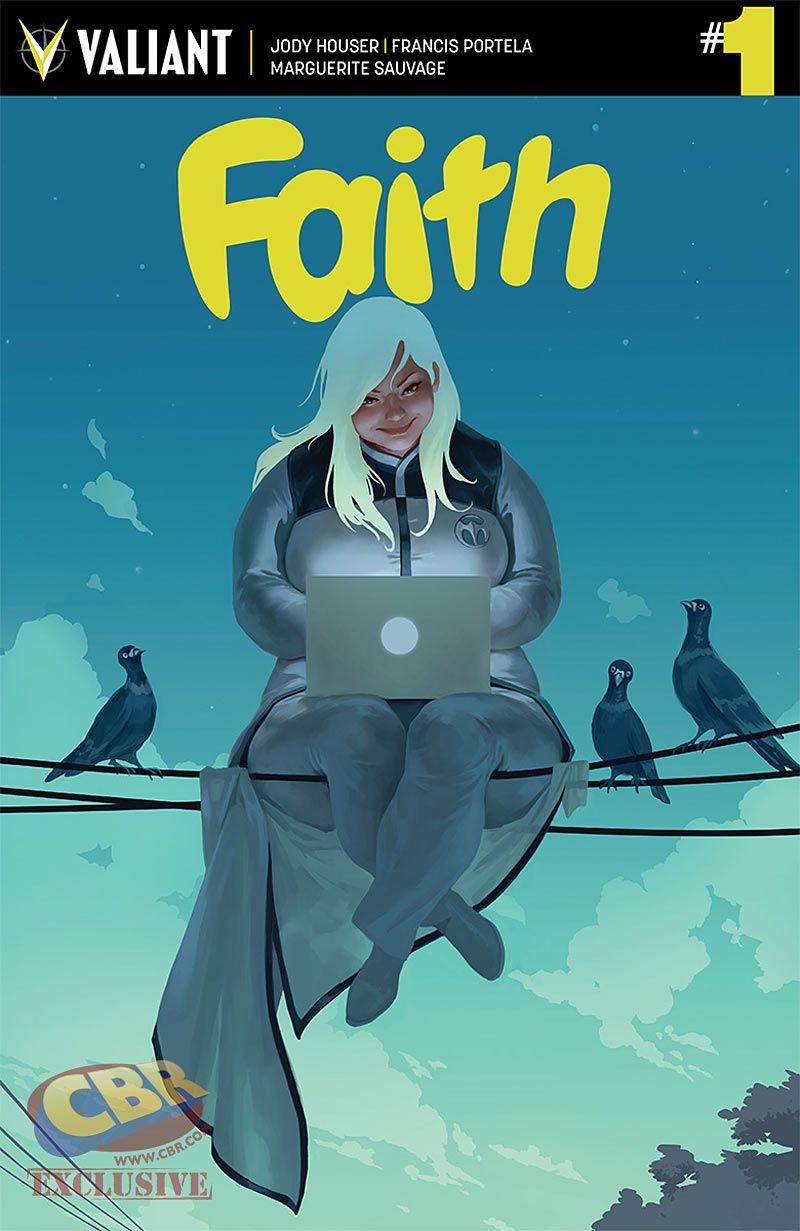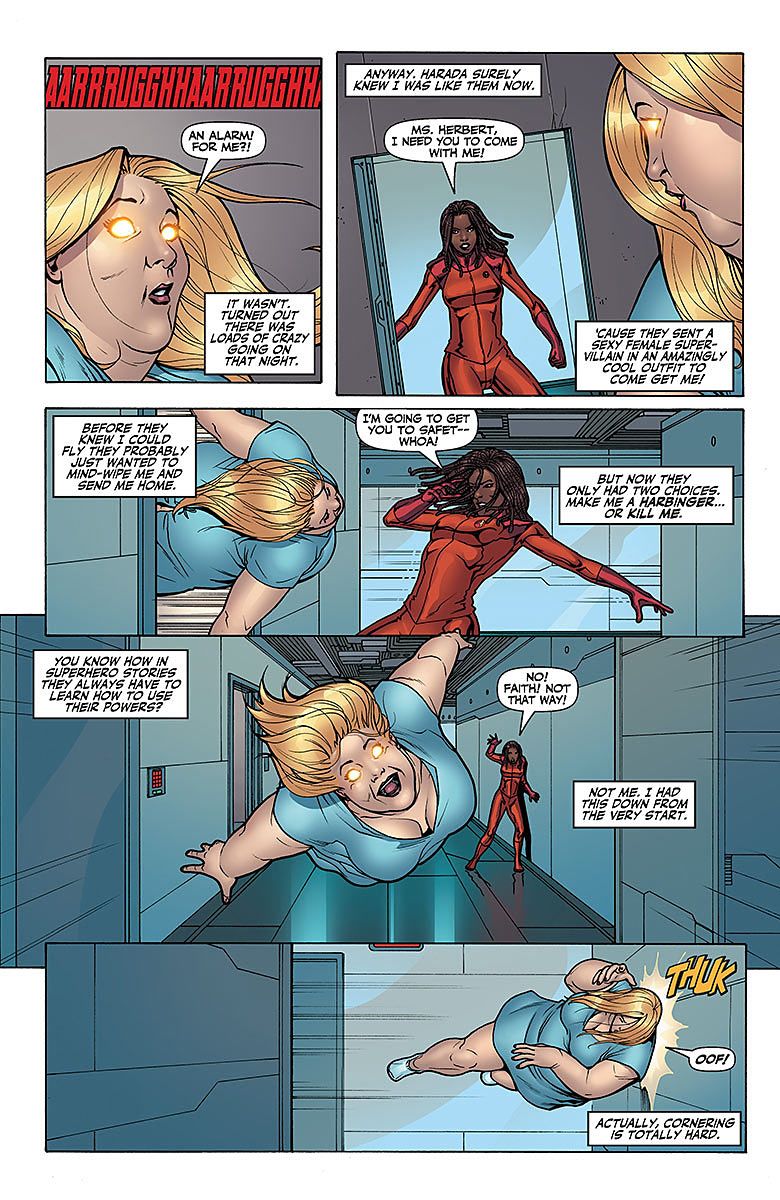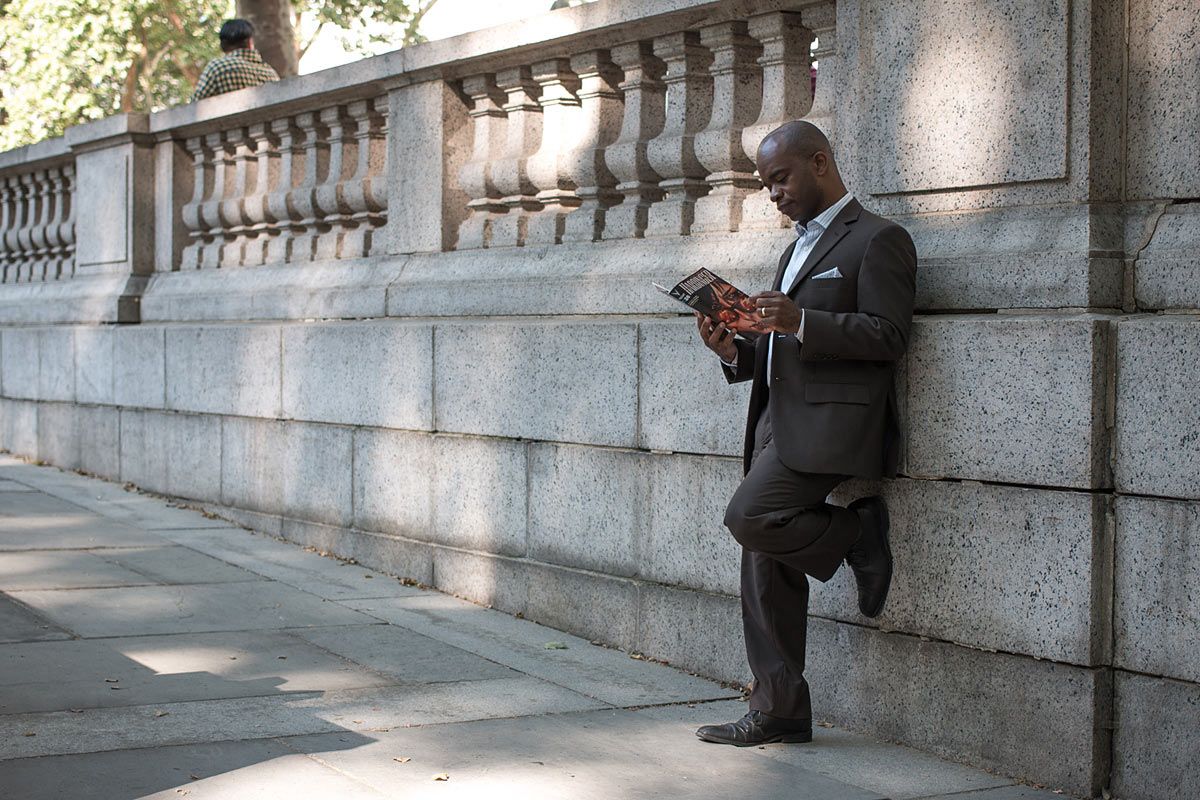God is Black.
Those three words, with their power to elicit a strong response from many people, lie at the core of the fictional world of superhumans from Valiant Entertainment's line of monthly comic books.
After two various publishing runs spearheaded by former Marvel Comics Editor-in-Chief Jim Shooter and veteran "X-Men" writer Fabian Nicieza, Valiant reemerged in 2012 with new management, established creators and a cohesive universe of characters which reflected and explored diversity in different ways than both Marvel and DC Comics did.
Valiant's first four monthly comic book series included "Harbinger," the teenage superhero team book. Along with illustrator Khari Evans, the creative launch team for "Harbinger" included writer Joshua Dysart, whose past work included the critically-acclaimed DC Comics/Vertigo series "Unknown Soldier." The story of a Ugandan doctor/sleeper agent and the conflict between his two identities in the midst of war, "Unknown Soldier" was amazingly authentic because Dysart spent time living in Uganda. He was able to bring a unique view to that story, an understanding of how society, race and politics are intertwined.
This understanding informed "Harbinger," a series about a group of teenage psionics (people with activated mind-based superpowers) waging war against Toyo Harada, the world-famous Japanese business magnate and owner of The Harbinger Foundation. Secretly, Harada is the most powerful psionic on Earth and his foundation trains psionics to become a special missions squad. Harada is the child of trauma, the activation of his powers happening after the bombing of Hiroshima, Japan in 1945, and his mission to save the world by controlling it is rooted in that incident. Humanity's capacity for self-annihilation is clear and real for Harada. The execution of his extreme vision makes Harada the villain of "Harbinger."
Such characteristics can be seen in variation with DC Comics' Ra's al Ghul character from the Batman mythology and The CW television series "Arrow," as well as Magneto, the super-powered mutant child of the Holocaust from Marvel's X-Men comics, portrayed by actors Sir Ian McKellen and Michael Fassbender in 20th Century Fox's X-Men films.
However, in the Valiant Universe, the villain actually wins.
Harada becomes more powerful as the saga of the Valiant Universe moves forward, and the story of his war against nations and government agencies is chronicled in "Imperium," also written by Joshua Dysart.
Between the launch of "Harbinger" in 2012 and "Imperium" in 2015, Valiant launched a number of comic book series which showcase the diversity within their superhero universe.
Profiling the first main Black character in the Valiant Universe, "Shadowman" was launched by Justin Jordan, Patrick Zircher, Brian Reber and Dave Lanphear. The series chronicles the origin and development of Jack Boniface, the latest in a line of Earth's defenders from the occult forces of The Deadside dimension.
Taking place in New Orleans and utilizing the city's culture, "Shadowman" provides some variations on the Black American male superhero by making him part of a family legacy. This legacy allows Jack Boniface to be his own Shadowman, not a Black man whose superhero identity is connected to a White superhero, like the Miles Morales Spider-Man or the Sam Wilson Captain America.
"Shadowman" introduced a new Asian female hero, Shan Sofia Fong-Mirage. Shan is a paranormal scientist and investigator who went on to headline her own limited series "The Death-Defying Dr. Mirage" by the creative team of Jen Van Meter, Roberto DeLa Torre, David Baron and Dave Lanphear.
A celebrity and highly-respected expert on the occult, Doctor Mirage uses her abilities and arsenal of talismans to travels between dimensions, helping people contact their deceased loved ones. Her ultimate goal is to make contact with the elusive spirit of her dead husband, Hwen Mirage.
This Doctor Mirage is dismissed and underestimated by older men a number of times... until Shan shows them her capabilities on things they do or don't understand. A universal theme women from various cultural backgrounds can relate to, Doctor Mirage is neither defined by this nor by her ethnic background.
The same way diversity spawned more diversity with the series of a Black male hero launching the series of an Asian female hero, Valiant's second superhero team book, "Unity," was launched from the company's "Harbinger" series.
Led by Amanda McKee (codename: Livewire), a Black woman with the psionic ability to mentally interface with any and all technology, the Unity team was originally assembled by billionaire psychic Toyo Harada to remove a powerful threat to his organization.
Livewire and Unity eventually broke away from their alliance with Harada and took on threats to the entire world.
In the aftermath of an alien invasion, the heroes of Unity revealed themselves to the public, with the promise to defend mankind from dangers extraterrestrial and otherwise.
The one threat Unity was almost unable to defeat was Divinity, the Black Russian man with the power of a god, or The God, depending on your point of view.
Kicked off by the creative team of Matt Kindt, Trevor Hairsine, Ryan Winn, David Baron and Dave Lanphear, the first "Divinity" series told the origin of Abram Adams, a Black cosmonaut born and raised in Russia.
Sent on a secret mission during The Cold War to discover and learn the greatest mysteries of outer space, Abram Adams made contact with an alien life form. He was forcefully imbued with vast power, and returned to Earth to be reunited with the love of his life, his girlfriend Eva.
Deemed as a threat by some but a benevolent deity by others, the future implications of Divinity's presence on Earth required a confrontation and eventual capture by Unity. It also led to the creation of a religious group, determined to spread the word of Divinity and free him from the government.
Perhaps the most daring and unique of Valiant's books, "Divinity" engages the dichotomy of a Black superpowered character with a perspective outside of the Black American narrative. The story of Abram Adams is, thus far, in no way informed by racism.
The most powerful being in the world is the most controversial icon in America today, for centuries past, and decades forward: a Black man.
I cannot think of an American superhero genre comic book from any of the major publishing houses which has done the same.
The same can almost be said of the interracial superhero duo comic book.
Marvel Comics has the new "Starbrand & Nightmask" series on deck, and has published stories of "The Daughters of The Dragon," based on the team of African-American ex-police officer Misty Knight and fellow investigator/ronin Colleen Wing.
Still, the archetype is not popular in terms of leads in a comic book series.
Valiant Entertainment has done this twice, with the same characters in two different versions.
"Quantum and Woody," the superpowered team of best friends Eric and Woody, was created by Christopher Priest and M.D. Bright, both Black creators and veterans of Marvel, DC Comics, Milestone Media, Inc., and the second publishing run of Valiant.
The "Quantum and Woody" series, first produced in the '90s, was revamped for a new Valiant series led by writer James Asmus and artist Tom Fowler.
Additionally, Valiant published "Q2: The Return of Quantum and Woody," with original creators Priest and Bright revisiting the characters in real time, almost two decades later to match the length of time since the original series' publication.
Valiant's character diversity extends to a degree of creator diversity.
Their female creators include DC Comics and Marvel veteran Jen Van Meter, and DC Comics' "Poison Ivy"/DMC Comics author Amy Chu.
Black writers include Christopher Priest and Marvel Comics/New Paradigm Studios veteran Karl Bollers.
Writers of color include the aforementioned Chu, Priest, and Bollers.
During a time in the comic book business in which characters of color and writers of color (especially Black) have been in greater demand from the fan base, and the lack of either being the subject of criticism from many writers including yours truly, Valiant Entertainment has provided both without breaking a sweat.
They provided a Black writer and artist on a series starring a Black male superhero, some time before the announcement of DC Comics hiring David Walker to write "Cyborg" or Marvel hiring author Ta-Nehisi Coates to write "Black Panther."
Like DC Comics and Marvel, the presence of an influential person of color is seen. Unlike both Axel Alonso, Editor-in-Chief of Marvel Comics, and Jim Lee, Co-Publisher of DC Comics, Valiant's CEO and Chief Creative Officer Dinesh Shamdasani is a co-owner of the company.
The examination of Valiant Entertainment alongside Marvel and DC Comics has been the subject of various articles and columns. Opinions on the former's present and speculated formidability. Reports on their investment partners, upcoming films and licensing. Questions as to whether Valiant Entertainment has that thing, the one various people in comics have said the industry has room for: a third viable universe of superheroes.
EXCLUSIVE: Valiant Puts "Faith" in Houser & Portela's Hands in January
Consider this: Recently, Valiant Entertainment has made a commitment to put forth a female character to be their Wonder Woman, the most prominent female in their superhero universe.
That character seems to be Faith Herbert.
A full-figured young woman with the ability to fly and carry other people in flight with a protective field, Faith Herbert is a character that flies in the face of typical archetypes for female superheroes in American comic books. She's flawed, wears her emotions on her sleeves, does not use weapons, and is comfortable with not having the body of a supermodel.
What she has is heart.
Introduced in the "Harbinger" series, Miss Herbert will appear in her own miniseries, "Faith," produced by a creative team led by "Orphan Black" writer Jody Houser and artists Francis Portela and Marguerite Sauvage.
Pushing Faith Herbert to the front and center of their universe.
The return of three characters of color, Shadowman, Doctor Mirage, and Divinity, each in a new series.
An ongoing series with an Asian man as the antihero savior.
These moves, distinctive from other publishers, show us there is room for more than two American superhero universe publishers, because of the courage to do something different.
To be a publisher with no flying man in a cape, no nighttime defender with money and a hardened will, no statuesque woman with a revealing body costume, no character wearing the flag of America.
Valiant is rolling the dice on the quality and diversity of creators and product.
Gimmicks come and go.
Quality is not a gimmick. It endures.
So will diversity.
I want more than two superhero universes.
Do you?
Joseph Phillip Illidge is a public speaker on the subjects of race, comics and the corporate politics of diversity. In addition to his coverage by CNN Money, the BBC and Publishers Weekly, Joseph has been a speaker at John Jay College of Criminal Justice, Digital Book World's forum, Digitize Your Career: Marketing and Editing 2.0, Skidmore College, Purdue University, on the panel "Diversity in Comics: Race, Ethnicity, Gender and Sexual Orientation in American Comic Books" and at the Soho Gallery for Digital Art in New York City.
Joseph is the Head Writer for Verge Entertainment, a production company co-founded with Shawn Martinbrough, artist for the graphic novel series "Thief of Thieves" by "The Walking Dead" creator Robert Kirkman and video game developer Milo Stone. Verge has developed an extensive library of intellectual properties for live-action and animated television and film, video games, graphic novels and web-based entertainment.
His graphic novel project, "The Ren," about the romance between a young musician from the South and a Harlem-born dancer in 1925, set against the backdrop of a crime war, will be published by First Second Books, a division of Macmillan.
Joseph's newest comic book project is the upcoming Scout Comics miniseries "Solarman," a revamp of a teenage superhero originally written by Stan Lee.

